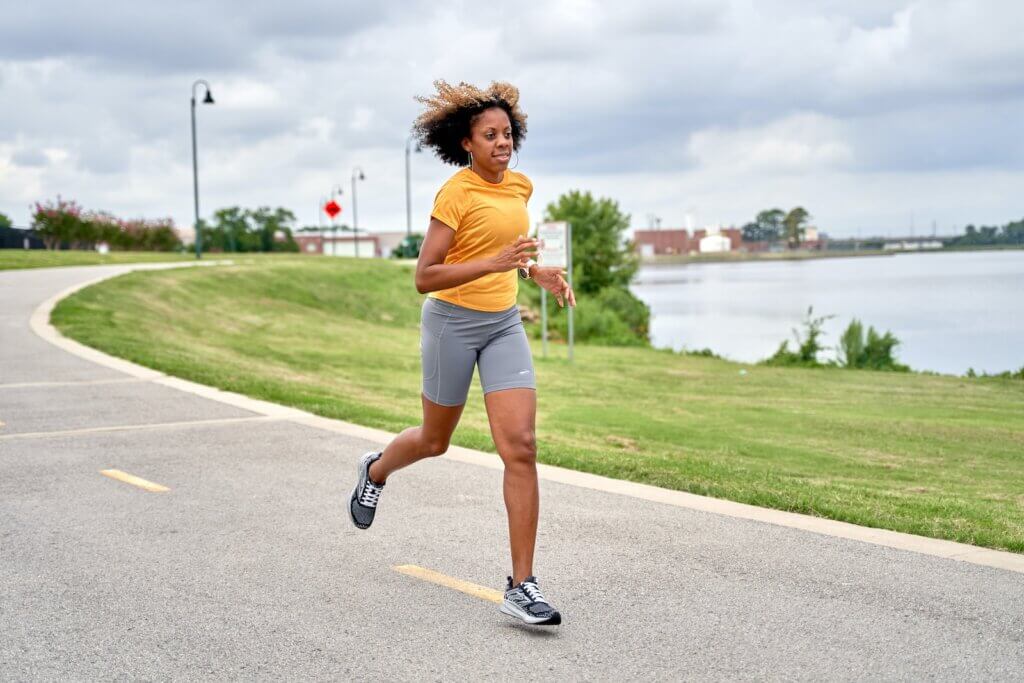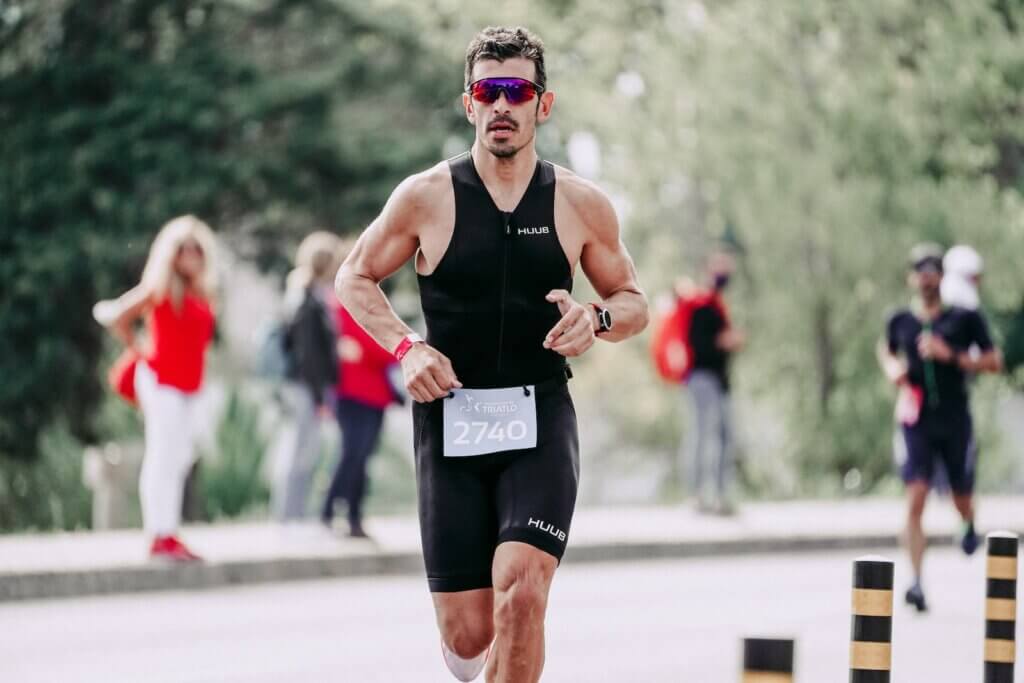Welcome to our blog post on average 2 mile run time by age and sex! Have you ever wondered how your running performance compares to others?
Whether you’re a seasoned runner or just starting out, understanding the average 2 mile run time can provide valuable insights into your fitness level and progress. So, let’s dive into the numbers: on average, individuals complete a 2 mile run in about 20 to 25 minutes.
But that’s not all—we’ll also explore how these times vary across different age groups, sexes, and fitness levels. Plus, we’ll share tips to help you improve your 2 mile run time, regardless of your age or sex. Ready to lace up those running shoes and join us on this exciting journey?
Let’s get started!
Table of Contents
How far is 2 miles?

Well, 2 miles is equivalent to 3.22 kilometers. Imagine walking straight for about 35 to 40 minutes at a comfortable pace, and you’ll have covered this distance.
To give you a practical example, if you were to run around a standard high school track, which is about 400 meters in length, you would need to complete five full laps plus an additional 200 meters to complete 2 miles.
Now, you might be thinking, “Why is this important?” Understanding the distance helps you gauge the effort and time required to complete a 2-mile run. Whether you’re training for a specific race, aiming to improve your fitness, or simply curious about average times, knowing the distance provides valuable context.
So, let’s dive into the average 2 mile run times by age and sex to get a better understanding of performance benchmarks.
Average 2 Mile Run Time By Age and Sex
When it comes to running, it’s always interesting to see how different factors, such as age and sex, can influence our performance. In this section, we’ll dive into the average 2 mile run times across various age groups and sexes. Let’s get started!
To provide you with concrete data, let’s take a look at the average 2 mile run times for each age and sex. Here’s a table showcasing the numbers:
| Age Group | Male (minutes) | Female (minutes) |
|---|---|---|
| 12-17 | 15:30 – 18:30 | 17:30 – 20:30 |
| 18-24 | 14:00 – 17:00 | 15:30 – 18:30 |
| 25-34 | 13:00 – 16:00 | 14:30 – 17:30 |
| 35-44 | 13:30 – 16:30 | 15:00 – 18:00 |
| 45-54 | 14:30 – 17:30 | 16:00 – 19:00 |
| 55-64 | 15:30 – 18:30 | 17:00 – 20:00 |
| 65+ | 16:30 – 19:30 | 18:30 – 21:30 |
Now, let’s break down these numbers. Remember, these ranges represent the average times for the given age groups, and individual performances may vary.
Example
If you’re a 25-year-old male, an average 2 mile run time would fall somewhere between 13 and 16 minutes. On the other hand, if you’re a 35-year-old female, you can expect your average time to range from 15 to 18 minutes. Keep in mind that these times can serve as a general benchmark, and personal factors like fitness level, training, and genetics can also influence your performance.
Don’t be discouraged if your time doesn’t align perfectly with these averages. The joy of running lies in personal improvement and the pursuit of individual goals.
By understanding these average times, you can gauge your progress and set realistic targets for yourself. Whether you’re aiming to beat the average time for your age group or striving for a personal best, having these benchmarks can be motivating and help you track your running journey.
Read: Average 3 Mile Run Time By Age and Sex
Average 2 Mile Run Time by Age and Fitness Level

When it comes to measuring our running performance, knowing the average 2 mile run time by age and fitness level can provide valuable insights. It allows us to gauge our progress, set realistic goals, and understand how we compare to others in our age group.
Let’s dive into the numbers and see how different age groups and fitness levels can impact the average 2 mile run time.
To give you a clear picture, here’s a table showcasing the average 2 mile run time for each age group and each fitness level:
| Age Group | Beginner | Novice | Intermediate | Advanced | Elite |
|---|---|---|---|---|---|
| 10-14 | 16:30-20:00 | 12:00-15:00 | 10:00-12:00 | 8:30-10:00 | Below 8:30 |
| 15-19 | 16:00-19:30 | 11:30-14:30 | 9:30-11:30 | 8:00-9:30 | Below 8:00 |
| 20-29 | 15:30-19:00 | 11:00-14:00 | 9:00-11:00 | 7:30-9:00 | Below 7:30 |
| 30-39 | 16:00-19:30 | 11:30-14:30 | 9:30-11:30 | 8:00-9:30 | Below 8:00 |
| 40-49 | 16:30-20:00 | 12:00-15:00 | 10:00-12:00 | 8:30-10:00 | Below 8:30 |
| 50-59 | 17:00-20:30 | 12:30-15:30 | 10:30-12:30 | 9:00-10:30 | Below 9:00 |
| 60-69 | 18:00-21:30 | 13:30-16:30 | 11:30-13:30 | 10:00-11:30 | Below 10:00 |
| 70+ | 19:00-22:30 | 14:30-17:30 | 12:30-14:30 | 11:00-12:30 | Below 11:00 |
Now, let’s break down what these numbers mean. Please keep in mind that these times represent general averages and can vary depending on individual factors such as genetics, training, and overall health.
Beginners
For beginners, who are just starting their running journey, the average 2 mile run time tends to be slower. This is perfectly normal as your body adapts to the demands of running. As you progress and become more familiar with running, you’ll gradually improve your time.
Novice
Novice runners, with a bit more experience under their belts, can achieve faster times. They have developed better endurance and are starting to optimize their running techniques.
Intermediate
Moving up to the intermediate level, runners are getting even faster. At this point, you have likely built a solid foundation and can maintain a steady pace throughout the 2-mile distance.
Advanced
Advanced runners are those who have dedicated time and effort to their training. They consistently train at a high intensity and have honed their running skills. As a result, their average 2 mile run time reflects their commitment and hard work.
Elite
Finally, elite runners are the cream of the crop. They have achieved exceptional fitness levels through rigorous training, discipline, and natural talent. Their average 2 mile run times are often impressive, setting them apart from the majority of runners.
Whether you’re a beginner aiming to complete your first 2-mile run or an advanced runner striving for a new personal record, the key is to focus on your own progress and enjoy the journey.
Next, let’s explore the world record for a 2 mile run and share some tips for improving your 2 mile run time, regardless of age and sex.
Read: Average 100 meter time
World record
The current world record for the 2 mile run is held by Kenenisa Bekele from Ethiopia. He set an incredible time of 8 minutes and 4.35 seconds in 2008. To put that into perspective, imagine running two miles in just a little over 8 minutes!
It’s an extraordinary feat that showcases the immense talent and hard work of elite runners. While it may seem daunting to achieve such a record-breaking time, remember that everyone starts somewhere.
Tips for Improving Your 2 Mile Run Time

1. Prioritize Interval Training
Incorporating interval training into your running routine can significantly boost your speed and endurance. Try alternating between periods of high-intensity running and active recovery. For example, sprint for 30 seconds and then jog or walk for 1 minute.
Repeat this cycle for several intervals during your run. Studies have shown that interval training can improve your running performance by up to 20% in just a few weeks.
2. Build Endurance with Long Runs
Long runs are crucial for building endurance and increasing your overall stamina. Gradually increase the distance of your runs over time to challenge yourself. For instance, if you’re currently running 2 miles, aim to extend it to 2.5 or 3 miles.
By gradually increasing the distance, you’ll condition your body to handle longer runs, making the 2-mile distance feel more manageable and allowing you to run it faster.
3. Incorporate Strength Training
Don’t neglect the importance of strength training when it comes to improving your running performance. Strength exercises like squats, lunges, and calf raises can help strengthen your leg muscles and improve your running efficiency.
By building a stronger foundation, you’ll be able to generate more power and propel yourself forward with each stride, resulting in faster run times.
4. Focus on Proper Form
Pay attention to your running form to maximize efficiency and reduce unnecessary energy expenditure. Aim to maintain an upright posture, engage your core muscles, and keep your arms relaxed and swinging naturally.
Avoid overstriding, as it can lead to inefficient movement and slower times. Instead, focus on maintaining a quick and light foot turnover, landing midfoot with each step.
5. Gradually Increase Speed
Once you have built a solid base of endurance, incorporate speed workouts into your training regimen. One effective method is incorporating tempo runs, where you maintain a challenging but sustainable pace for a prolonged period, such as running at 80% of your maximum effort for 10 minutes.
By gradually increasing your speed during these workouts, you’ll improve your overall running economy and increase your 2-mile run time.
6. Don’t Forget about Recovery
Giving your body adequate rest and recovery is crucial for avoiding injuries and allowing for optimal performance. Make sure to incorporate rest days into your training schedule and prioritize proper nutrition and sleep.
Additionally, consider cross-training activities such as swimming or cycling, which provide cardiovascular benefits while reducing the impact on your running muscles.
Remember, improving your 2-mile run time requires consistency, dedication, and patience. By implementing these tips into your training routine and gradually pushing your limits, you’ll be well on your way to achieving faster and more satisfying results in your 2-mile runs.
Final Thoughts
As we come to the end of this exploration of average 2 mile run times by age and sex, I hope you’ve gained valuable insights into your own running journey. Remember, the distance of 2 miles may seem daunting or easily attainable depending on your perspective. Embrace it as a challenge that can push you to new limits and help you gauge your progress over time.
No matter your age or sex, the average 2 mile run times provided a benchmark to assess your performance. Whether you’re a beginner, intermediate, or elite runner, there’s always room for improvement. Take inspiration from world records and the achievements of others, but ultimately focus on surpassing your own personal best.
Don’t forget that running is a journey of self-discovery, and your dedication and effort will yield results regardless of age or sex. Follow the tips we’ve shared to improve your 2 mile run time, and most importantly, enjoy the process.
You might like
Frequently Asked Questions
What is the Army 2 mile run time?
The Army’s standard for the 2 mile run varies based on age and gender. For males aged 17-21, the requirement is usually around 15-16 minutes. Females in the same age group have a standard of around 18-19 minutes. However, these standards can vary, so it’s best to consult the specific requirements for the branch of the military you are interested in joining.
What’s a good 2 mile time for a girl?
A good 2 mile time for a girl can vary depending on factors such as age, fitness level, and personal goals. However, as a general guideline, a time of under 20 minutes is considered good for girls aged 12-14. For girls aged 15-18, a time of under 18 minutes is often seen as a good goal. Remember, it’s important to set realistic goals based on your individual abilities and work towards improvement at your own pace.
Can you run 2 miles in 30 minutes?
Absolutely! Running 2 miles in 30 minutes is achievable for many individuals, especially beginners or those who are just starting their fitness journey. It equates to an average pace of about 15 minutes per mile, which is a comfortable pace for most people. With consistent training and gradual progress, you can work towards improving your speed and reducing your time.
What is a good 2 mile time for a 12-year-old boy?
A good 2 mile time for a 12-year-old boy can vary based on individual fitness and athleticism. On average, a time of around 16-18 minutes is considered good for this age group. However, it’s essential to remember that every child is different, and it’s important to focus on personal improvement and overall fitness rather than comparing oneself to others. Encourage your child to set realistic goals and enjoy the process of becoming a stronger runner.


